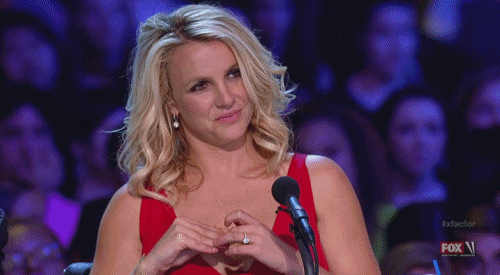 THUNDER BAY – HEALTH & Beauty – Have you ever tried to keep a bandaid on the end of your finger past a few hours that it isn’t chewed up on the end with a million pet hairs, dirt and fluff on the ends?! This may work with small kids, but lots of people don’t want to go to work with fingers all bandaided up.
THUNDER BAY – HEALTH & Beauty – Have you ever tried to keep a bandaid on the end of your finger past a few hours that it isn’t chewed up on the end with a million pet hairs, dirt and fluff on the ends?! This may work with small kids, but lots of people don’t want to go to work with fingers all bandaided up.

So why do we bite our nails anyways?
The medical name for excessive nail biting: ‘onychophagia’ (oni-co-fasia). Psychiatrists classify it as an impulse control problem, alongside things like obsessive compulsive disorder. But this is for extreme cases, where psychiatric help is beneficial, as with other excessive grooming habits like skin picking or hair pulling. Most people have the the habit without serious side effects. Up to 45% of teenagers bite their nails. We may do it from stress, or doing it subconsciously when our minds are elsewhere.
We all have the preconception of “its gross”. No one wants to have their fingers in their mouth and then go and touch something… we scold children for doing it all the time but then do it ourselves: sometimes with some embarrassment or no care in the world.

- picking at them while we are thinking is also very common
What else is going on when we do bite our nails? Or even pick at them? Nail biting may actually be harmful to you beyond the emotional effects of being embarrassed of your actions or just simply on how they look. We all know the obviously factors from nail biting, super short finger nails, chewed up hard callous around the nail, cracked skin on fingers, and red and swollen. But there are more for instance…
1. Disease-Causing Bacteria
The underneath of nails are an ideal location for bacteria to thrive, and that includes potentially pathogenic bacteria like Salmonella and E. coli . As you bite your nails, those bacteria easily transfer into your mouth and the rest of your body, where they may lead to infections.
2. Nail Infections
Nail biters are susceptible to paronychia, a skin infection that occurs around your nails. As you chew your nails, bacteria, yeast, and other microorganisms can enter through tiny tears or abrasions, leading to swelling, redness, and pus around your nail.

This painful condition may have to be drained surgically. Bacterial infections caused by nail biting.
3. Warts Due to HPV Infections
Warts on your fingers caused by human papillomavirus, or HPV, are common among chronic nail biters. These warts can easily spread to your mouth and lips (then to other lips and other areas on your loved ones) as you bite your nails.
4. Dental Problems
Nail biting can interfere with proper dental occlusion, or the manner in which your upper and lower teeth come together when you close your mouth.
Your teeth may shift out of their proper position, become misshapen, wear down prematurely, and become weakened if you bite your nails over time. The Academy of General Dentistry estimates that frequent nail biters may rack up $4,000 in additional dental bills over the course of their lifetime.4
What Can You Do to Stop?
Here are some tips to help.
Be aware: Keep a journal to identify your nail-biting triggers, such as boredom or watching TV, then avoid the triggers as much as possible
Change the texture: Some people will say put bandaids on your fingers. Have you ever tried to keep a bandaid on the end of your finger past a few hours that it isn’t chewed up on the end with a million pet hairs, dirt and fluff on the ends?! This may work with small kids, but lots of people don’t want to go to work with fingers all bandaided up.
I suggest getting a gel or acrylic manicure. This still changes the texture of your nails. Its also a mind trick.. you go to put the nails to your mouth and you may look down and see how nice they are. There is also a mental trigger that you actively sought out to change them and paid good money for nice hands. The manicures will also help keep everything .. well .. manicured. Not having any hangnails or excess skin to bite gives you nothing to do. If you don’t want a gel or acrylic set, even a regular manicure with a strengthening and nourishing polish can help.
Distract your hands: Keep your hands busy with other activities, such as knitting, drawing, stress ball, or even learn a instrument.
Change the taste: Put an unpleasant tasting substance on your fingertips (vinegar, hot sauce, or commercially available bitter-tasting options)
If it just is impossible: Consider behavioral therapy, such as habit reversal training.
—

